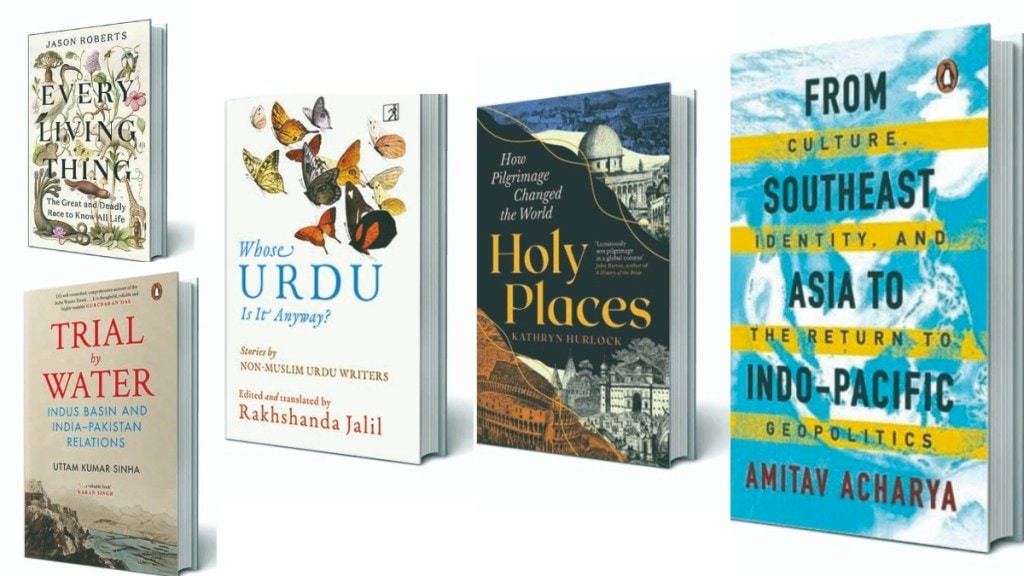Trial by Water
Uttam Kumar Sinha
Penguin Random House
Pp 352, Rs 599
In 1947, the Indian subcontinent was partitioned, and Pakistan was born. A shared heritage, a composite culture and centuries-old bonds between people, all seemed to vanish overnight. Nowhere was this rupture more profound than in the Indus Basin—once a unified lifeline of the region. This book traces the turbulent history of the Indus Basin and examines how the Indus Waters Treaty has been shaped by the region’s ever-evolving political dynamics.
From Southeast Asia to Indo-Pacific
Amitav Acharya
Penguin Random House
Pp 252
This is a provocative and deeply informed exploration of the region’s uncertain future amid shifting power dynamics. Amitav Acharya examines how historical legacies, cultural constructs, and institutional evolution shape the present-day challenges facing Southeast Asia. With clarity and insight, he unpacks the tensions between global ambition and local coherence, offering a nuanced perspective on how the region must adapt or risk fading into strategic obscurity.
Holy Places
Kathryn Hurlock
Hachette
Pp 464, Rs 799
Kathryn Hurlock follows the trail of pilgrimage through 19 breath-taking sacred sites—from the temples of Jerusalem to the banks of the Ganges, by way of Iona, Lourdes, Amritsar and Buenos Aires—revealing the many ways in which this ancient practice has shaped our religions and our world. Filled with fascinating insights, Holy Places unveils the complex histories and contemporary endurance of one of our most fundamental human urges.
Every Living Thing
Jason Roberts
Hachette
Pp 432, Rs 799
In the 18th century, Carl Linnaeus, a Swedish doctor, believed that life belonged in tidy, static categories. Georges-Louis de Buffon, an aristocratic polymath, viewed life as a dynamic swirl of complexities. Stunned by life’s diversity, both fell far short of their goal. But in the process they articulated starkly divergent views on nature, on humanity’s role in shaping the fate of our planet, and on humanity itself.
Whose Urdu Is It Anyway?
Rakhshanda Jalil
Simon & Schuster
Pp 208, Rs 499
Is Urdu the language of Muslims? Or to be more precise, the language of Indian Muslims? This collection of 16 short stories, entirely by non-Muslim Urdu writers, is an attempt to bust stereotypes and address a persistent misconception—that Urdu is the language of India’s Muslims and that it addresses subjects that are, or should be, of concern to Muslims, and Muslims alone. It locates Urdu in its rightful place—in the heart of Hindustan.







